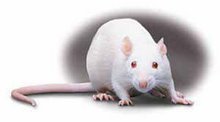Now, I've been victimized by mosquitoes many times, but this was nothing like I'd ever experienced before. In seconds, all exposed skin was completely covered by these little, black and gray devils. Off! spray had no effect. The only thing we could do was cover ourselves as much as possible with clothing and rain suits and soldier through it.
And then I had to take a dump in the woods. Oh, man! I've never been so creeped out in my life. That was the fastest sh*t I think I've ever taken. My ass was one giant itching sore after that. As I rushed through the process, I couldn't help but wonder how many mosquito-borne diseases I was contracting through my butt. Even if the odds were one in a million, I'm sure I was bitten more than that. It really made me feel sorry for people who live in tropical or swampy regions where mosquito infestations like that were the norm. No wonder diseases like malaria and dengue fever wipe out huge number of people in the tropics each year. It's a wonder humanity doesn't go extinct in those regions (or take a dump outdoors!).
So it should come as no surprise that even the dinosaurs were not immune to the horrors of the not-so-humble mosquito. In fact, two leading entomologists are suggesting that insect-borne diseases may have contributed to the demise of dinosaurs:
http://www.physorg.com/news118591469.html
 George and Roberta Poinar, husband-and-wife entomologists at Oregon State University, have made this argument in their book, What Bugged the Dinosaurs? Insects, Disease and Death in the Cretaceous, which has just been published. These authors are more famous for their work studying ancient insects preserved in amber, and are very well-regarded in their field. I had the honor of working in the same department as Dr. Poinar, for a year and a half, back when I was an entomologist.
George and Roberta Poinar, husband-and-wife entomologists at Oregon State University, have made this argument in their book, What Bugged the Dinosaurs? Insects, Disease and Death in the Cretaceous, which has just been published. These authors are more famous for their work studying ancient insects preserved in amber, and are very well-regarded in their field. I had the honor of working in the same department as Dr. Poinar, for a year and a half, back when I was an entomologist.Now, likely you're all familiar with the idea of a gigantic meteor hitting in what is now the Yucatan area, causing a catastrophic climate change which likely was the leading factor in the dinosaur die-off known as the "K-T Boundary" at the end of the Cretaceous Period, but one perplexing thing about that has been that the die-off wasn't immediate. It still took thousands of years for most of those dinos to go extinct, and many took much, much longer. Though the meteor theory would be a good kick-off to weaken species, something like disease states would be good candidates for finishing the job. And there is evidence in fossilized dino crap of infections by nematodes, trematodes, and protozoans that could have brought disease conditions and viruses to these reptiles. These sorts of diseases were likely just emerging, so the vertebrates would have had little resistance.
So, basically, the Poinars are suggesting these lumbering beasts were the victims of getting bitten in the ass by bastardly, disease-ridden little mosquitoes and other biting insects and killed because of it.
I can sympathize. My ass still itches just thinking about it!
Images adapted from HERE and HERE.



3 comments:
This is perfect it's a very good information because I could get excellent information from here, I hope seeing great ideas like those soon.
hello, i think that this post is the best that i have read because has useful information.
It is an interesting topic, dinosaurs were just amazing beasts.
Post a Comment